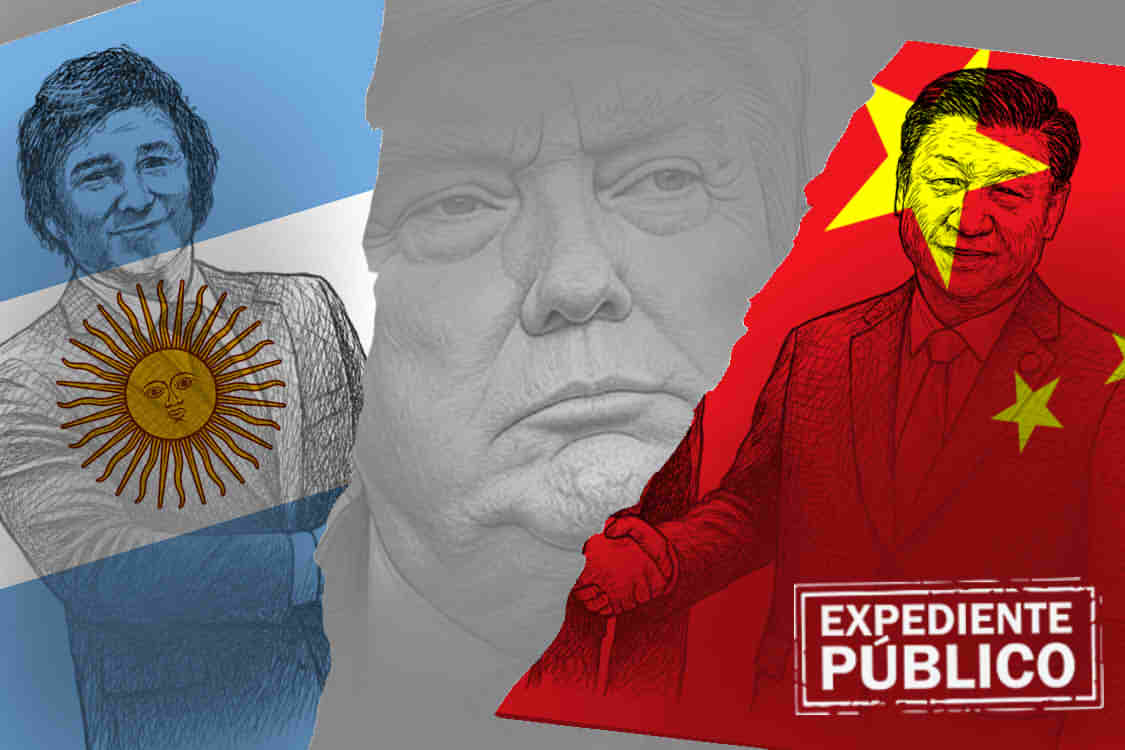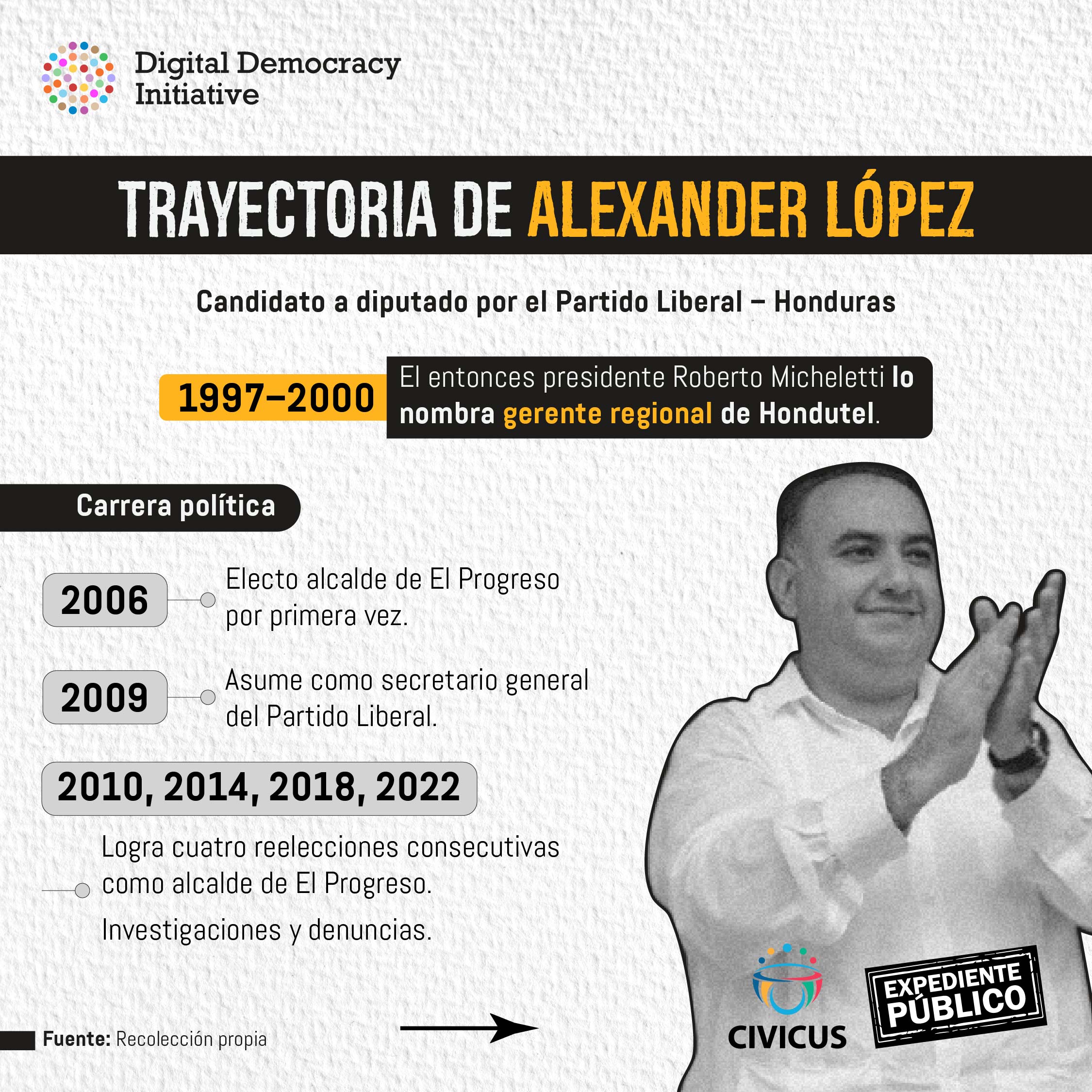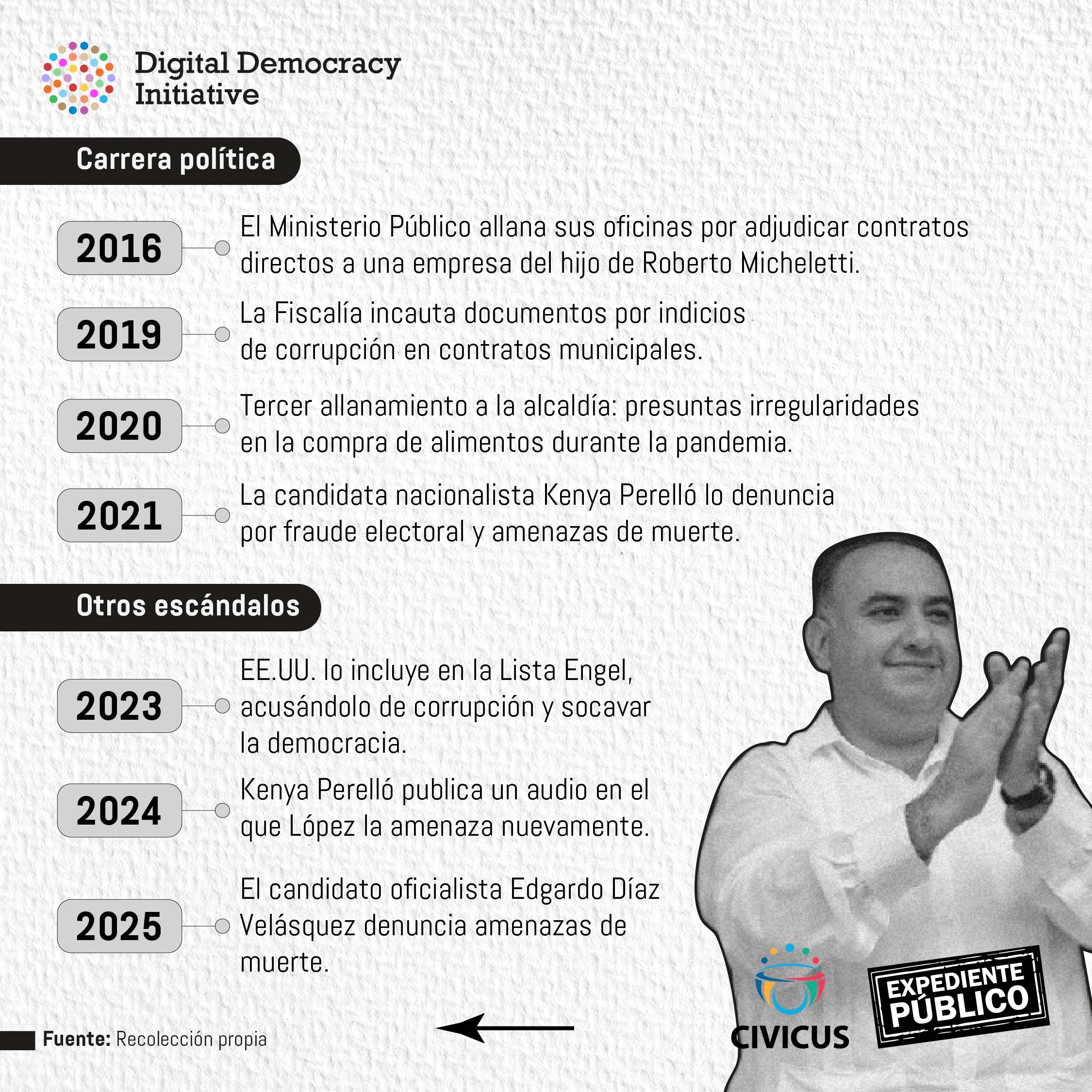* Milei’s visit to Washington seeks a financial lifeline, forcing his administration’s foreign policy to walk a tight rope between Washington and Beijing.
** Washington’s support is not due to a regional strategy but rather an immediate political calculation, warn Michael Shifter and Douglas Farah from Washington DC.
Natalia López
Especial para Expediente Público
Argentine President Javier Milei is preparing to be received by Donald Trump at the White House on his first official visit to Washington, D.C., amid an unprecedented $20 billion financial bailout announced by the U.S. Treasury. But behind the gesture, in the context of U.S. midterm elections, a deeper dispute is being waged: the redefinition of the geopolitical map in Latin America.
Javier Milei’s trip to Washington seeks not only financial oxygen for a crisis-stricken economy but also to consolidate his place within the ideological bloc led by Donald Trump. However, the U.S. Treasury’s backing of Argentina goes beyond economics: it reflects the strategic competition between Washington and Beijing for influence in the region.
The Treasury’s intervention, the drop in the “blue dollar,” and the promises of new investments mark the beginning of a new period, with Argentina as the stage where the rivalry between the United States and China plays out.
Subscribe to Expediente Público’s newsletter for more information
In this context, two specialists in hemispheric politics—Michael Shifter, former president of the Inter-American Dialogue and professor at Georgetown University, and Douglas Farah, founder of IBI Consultants—analyze the motivations, risks, and consequences of this new White House rapprochement on a chessboard, where ideology and economics intertwine with the competition among powers.
An Alliance with Ideological and Strategic Significance
Milei’s visit to Washington has a dual objective: to consolidate his alignment with the United States and to secure support for his economic program, marked by recession, a shortage of foreign reserves, and the urgency to reach the midterm elections with some breathing room.
The announcement of the financial bailout, led and communicated so far by Treasury Secretary Scott Bessent, has raised alarms in Beijing. Bessent, one of Trump’s closest allies, stated that Milei “is committed to getting China out of Argentina.” The statement encapsulates the new White House approach: rewarding ideological allies and pressuring to curb China’s influence in strategic sectors of the Southern Cone.
Read: China Index – Beijing Strengthens Its Power in Argentina
However, the U.S.’ financial assistance is also generating controversy in Washington.
Last Thursday, the Democratic bloc in the Senate introduced a bill, the “No Argentina Bailout Act,” promoted by Elizabeth Warren and backed by lawmakers such as Tim Kaine, Bernie Sanders, and Cory Booker. The bill seeks to prevent the Treasury Secretary from using the Exchange Stabilization Fund to carry out financial bailouts.
Meanwhile, Democratic lawmakers argue that the package’s main objective is not to stabilize the Argentine economy but to protect the interests of major U.S. private funds, such as BlackRock, Fidelity, and Pimco.
Washington’s View: Security and Containment
The United States watches China’s expansion in Latin American with growing concern, especially in critical infrastructure and dual-use technology (civil and military). In Argentina, the Neuquén space base—known as the “Deep Space Station” and operated by the China National Space Administration (CNSA), China’s state space agency—under an agreement signed in 2014, continues to be a source of the Pentagon’s concern.
China is also involved in energy, infrastructure, and mining projects inherited from previous Argentinian governments that remain active, and the two countries maintain a pragmatic relationship, transcending ideological discourse. Examples include: the Néstor Kirchner and Jorge Cepernic dams in Santa Cruz, Chinese participation in lithium extraction in northern Argentina, and technological agreements with Huawei and ZTE for 5G networks.
In recent months, the Argentine government has sought signs of rapprochement with Washington: support in multilateral forums, rhetorical alignment with Trump’s foreign policy, and exploration of a possible financial agreement with the Federal Reserve that could replace the Argentina-China swap.
The Argentina-China swap is a financial agreement that allows Argentina’s Central Bank to exchange pesos for yuan, strengthening international reserves and providing liquidity during periods of economic stress. It serves as a lifeline for foreign trade transactions or stabilizing the foreign exchange market.
See also: Milei and Communist China – A Clash with Argentina’s Commercial Reality
The Argentina-China swap was originally signed in 2009 and has been renewed several times; the latest amounts to USD 5 billion, valid until 2026, though it may be extended by mutual agreement between both countries. The search for U.S. backing occurs within this context of partial dependence on Chinese financing and reflects the tension between maintaining strategic ties with Beijing and opening new avenues of cooperation with Washington.
The Stage is Set
Milei’s trip comes at the close of the midterm campaign, with an economy in recession, persistent inflation, and rising social tensions. In this scenario, alignment with Trump also carries a domestic message: reaffirming the president’s ideological profile before his base and projecting international leadership amid economic fragility.
However, Argentina’s room for maneuver is limited. China remains the country’s main trading partner after Brazil, and its role as a creditor and investor is irreplaceable in the short term.
Washington, for its part, appears to demand concrete signals in exchange for the unofficial agreement: a review of deals and assurances that Buenos Aires will not act as a gateway for Chinese strategic interests in the region.
Also: China and Argentina in the New Era of Javier Milei
In a recent interview with Fox News, U.S. Treasury Secretary Scott Bessent stressed that President Milei is committed to reducing China’s presence, emphasizing that the administration seeks to limit the expansion of Chinese influence in Latin America.
The spokesperson for the Chinese Embassy in Argentina responded harshly to Bessent’s words on October 11. In a statement, he warned that “the United States must understand that Latin America is not its backyard,” language reminiscent of the Cold War that reveals the geopolitical backdrop of the dispute.
“This cooperation,” the statement added, “has always aligned with the strategic needs and interests of both parties. The United States, on the other hand, has long imposed its hegemony and sought to control the region’s countries, with clear acts of bullying and domination.”
Washington’s Motivations
For Michael Shifter, former president and Senior Fellow of the Inter-American Dialogue and professor at Georgetown University, the U.S. financial bailout for Argentina corresponds more to an immediate political and economic calculation than to a structural strategy to contain China’s influence in the region.
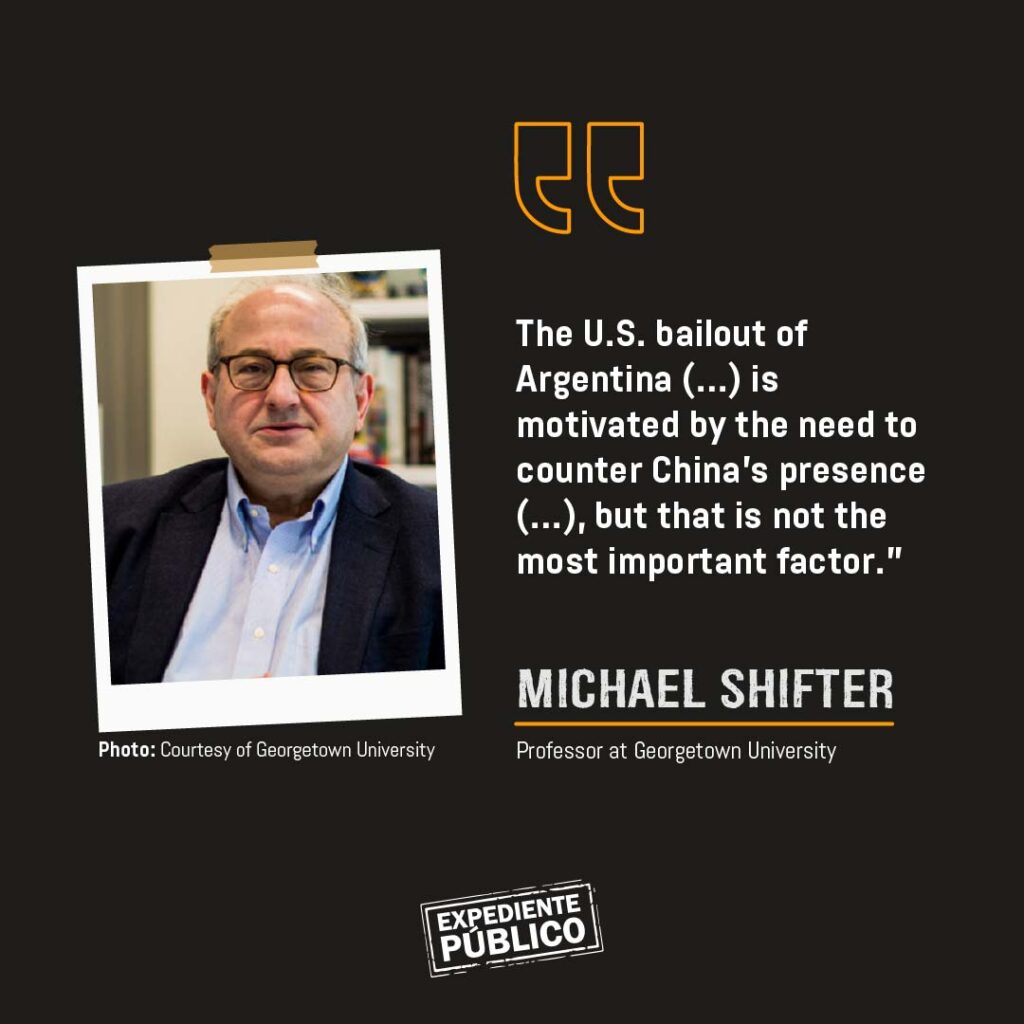
In statements to Expediente Público, the analyst considered that Washington seeks to stabilize markets and support Javier Milei’s reform agenda. However, he warned that this backing does not set a regional precedent nor imply a lasting change in U.S. policy toward Latin America.
“The U.S. Treasury’s bailout of Argentina is due to a series of factors. The intention to counter China’s presence plays a role, but it is not the most important factor,” he stated.
See also: China in Argentina – The ‘Neocolonization’ That Destroys Everything
Shifter also described the domestic political situation as “delicate.” “Timing is crucial. It is a political endorsement of a Trump ideological ally just weeks before the midterm elections.”
But the real impact remains to be seen. Trump has paid an internal cost for this decision, which has generated backlash, even among soybean producers and parts of the MAGA movement.
“To displace China as Argentina’s or other Latin American countries’ strategic partner, the United States would need to adopt a committed and positive policy toward the region, focused on an economic agenda of investment and trade. However, that option goes against the ‘America First’ idea that currently dominates U.S. politics,” he added.
The Interests Behind the Support
For Douglas Farah, founder and president of IBI Consultants—with more than three decades of fieldwork in Latin America as a journalist and academic—the U.S. financial support to Javier Milei’s government does not correspond with a coherent regional strategy but rather to political and economic maneuvers. In an interview with Expediente Público, he reflected on what lies behind the bailout.
“The United States has been very slow to react or to offer alternatives to what China brings to the table in Latin America. Since the Trump administration does not really have a coherent or long-term strategy, this opportunity was improvised to protect Trump’s and Treasury Secretary Scott Bessent’s investor friends, opening the doors to Milei,” he said.
The expert added that internal discontent in the U.S. could shape foreign policy: “To displace China, a long-term strategy with much broader objectives than the current ones would be needed. China has the tools to exert pressure and a solid long-term plan,” he reflected.
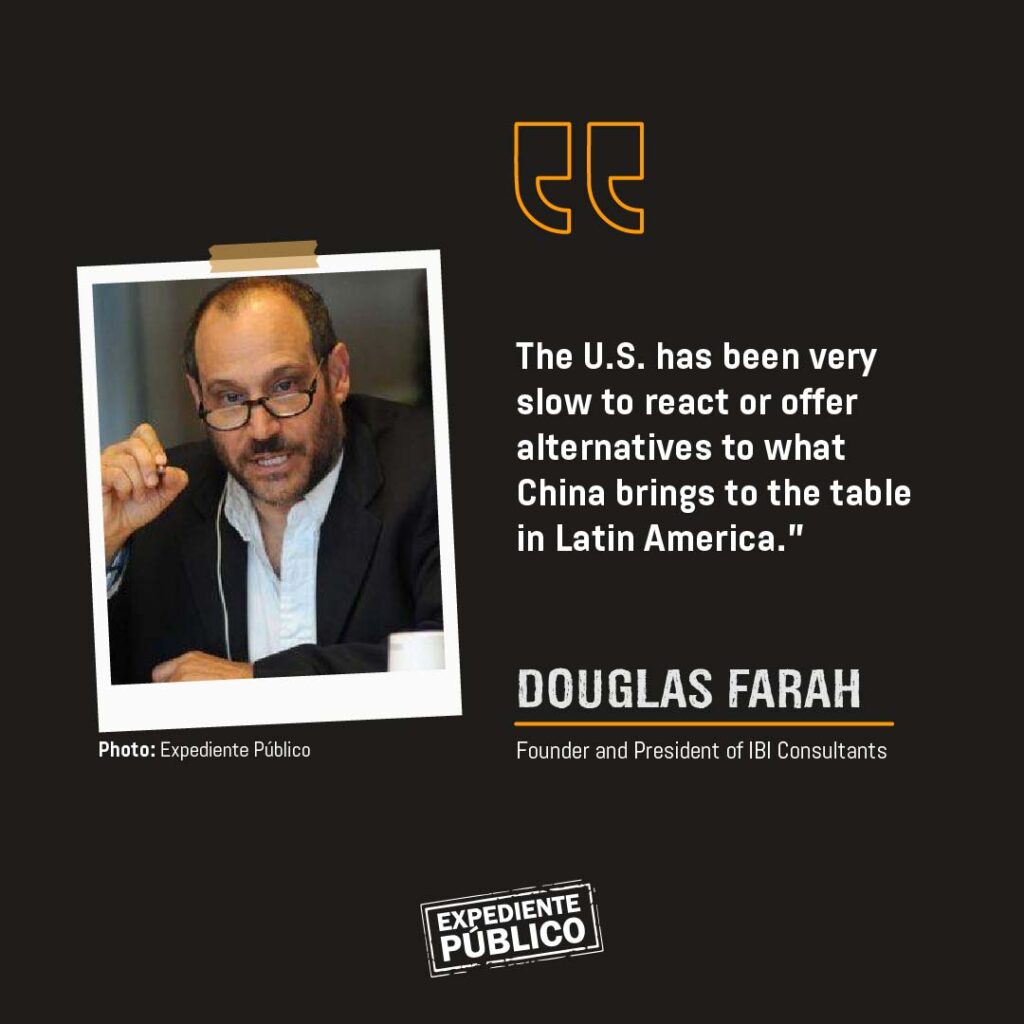
He added that this maneuver may give Milei a breather, but at a high political cost for Trump and his MAGA base, which disapproves of sending money to Argentina amid domestic budget cuts.
“It could only set a precedent in countries loyal to Trump and with strong interest from U.S. investors. In that sense, it is a purely transactional decision: few countries have something to offer Trump in exchange for his support,” he said.
The Bailout: Between Economics and Geopolitics
The assistance package has not yet been officially presented, but it is clear that it aims to stabilize markets and strengthen the libertarian government’s reform agenda.
Interior Minister Guillermo Francos tried to defuse the controversy with the Asian country on October 10 in a radio interview. “I don’t think the agreement is meant to exclude China from Argentina,” he said, adding that he had not yet seen the formal agreement between Argentina and the U.S., since only “preliminary comments” about the deal were known so far.
However, sources from the Ministry of Economy admitted to Expediente Público that U.S. pressure is aimed precisely at reviewing the Argentina-China currency swap with the People’s Bank of China, worth $5 billion and renewed until 2026. Currently, it is vital for the Central Bank.
The Treasury’s intention would be to offer, in the medium term, alternative financial mechanisms linked to the Federal Reserve or the IMF, although those channels have not yet been defined.
Balancing Two Fronts
Milei’s visit seeks to project an image of total alignment with the U.S., but his room for maneuver is narrow. The Argentine economy also depends on yuan from the Argentina-China swap and exports to Asia.
If the government decides to break or reduce those ties, it will need immediate alternative sources of financing—something Washington has not yet guaranteed.
The official trip to Washington symbolizes Javier Milei’s attempt to consolidate his place on the map of the global right, under Trump’s protection. In the short term, the U.S. bailout would give breathing space to a government weakened by crisis. In the medium term, Argentina risks becoming the focus of a new geopolitical rivalry—an arena that its current economy is ill-equipped to handle.
China will not easily withdraw from the scene, and the United States has yet to demonstrate a regional plan beyond the political gesture.
Between Washington and Beijing, between ideology and necessity, Milei’s Argentina navigates an increasingly fragile balance in a region where bailouts always come with a price.
In the coming days, it will be key to learn the details of the agreement reached between Argentina and the United States and the conditions attached to that support, which could define the true cost of this new stage in Argentina’s foreign relations.

